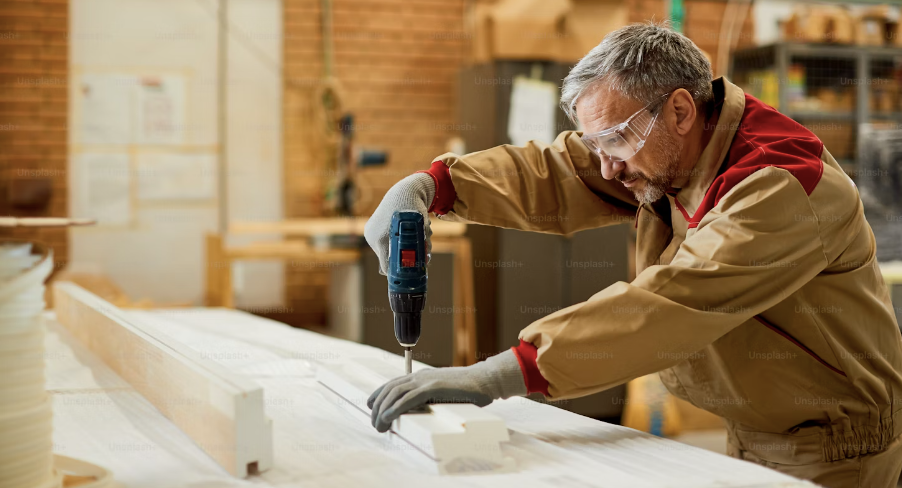As a beginner woodworker, investing in the right power tools can make a huge difference in your projects. Power tools not only speed up the process but also improve accuracy and the overall quality of your work.
1. Circular Saw
A circular saw is arguably the most versatile power tool in a woodworker’s toolkit. It’s great for making straight cuts in plywood, hardwood, and other materials. With the right blade and a guide, a circular saw can perform almost any task that a table saw can do, from crosscuts to rip cuts.
Circular saws are portable, easy to use, and ideal for beginners working on small to medium-sized projects. They’re a great all-purpose tool for both rough and precise cuts. Use a straightedge guide or clamped-down straight board to ensure precise cuts.
2. Power Drill/Driver
A power drill is an absolute necessity for any woodworker, whether you're drilling holes or driving screws. A cordless drill offers mobility, while a corded drill provides consistent power. Look for one with variable speed and multiple torque settings for added control.
- **Why you need it:** A drill can handle everything from creating pilot holes to driving screws, and it can be used with various attachments like spade bits or hole saws. Invest in a set of wood-specific bits and a set of driver bits for different screw types.
3. Random Orbital Sander
Sanding by hand is time-consuming and labor-intensive. A random orbital sander allows you to smooth wood surfaces quickly and with minimal effort. It’s also more forgiving than a belt sander, leaving fewer visible marks on the wood.
An orbital sander is essential for finishing projects, smoothing rough wood, and preparing surfaces for staining or painting. Use a dust collection attachment or vacuum system to reduce dust in your workspace.
4. Jigsaw
For making curved or irregular cuts, a jigsaw is the ideal tool. Its lightweight design and control make it perfect for cutting patterns, shapes, and detailed cuts in wood. You can also use it for cutting holes or trimming smaller pieces of wood.
A jigsaw is great for more creative, freeform projects like cutting custom shapes, curves, or designs into wood. Use the right blade for the material you're cutting. Finer-tooth blades are better for smooth cuts, while coarser-tooth blades are faster but rougher.
5. Miter Saw
A miter saw excels at making accurate crosscuts and angled cuts, making it an indispensable tool for projects that require precision, such as building furniture or framing. It can quickly and accurately cut wood at different angles, perfect for trim work or cutting boards to length.
It’s an efficient tool for making accurate, repeatable angled cuts—ideal for projects like picture frames, door frames, or trim work. If possible, opt for a sliding miter saw to allow for cutting wider pieces of wood.
6. Table Saw
While a bit more of an investment, a table saw is invaluable for making precise rip cuts, crosscuts, and bevel cuts on larger pieces of wood. It's one of the most versatile tools in a woodworker's arsenal, useful for cutting sheet goods like plywood or MDF, as well as ripping boards to size.
A table saw is a powerhouse for any woodworker who needs to make a lot of long, straight cuts with precision. Always use a push stick when cutting narrow pieces to keep your hands safe.
7. Router
A router is perfect for creating decorative edges, hollowing out areas in wood, and making joints like dadoes or rabbets. It's highly versatile, allowing you to add details like bevels or grooves to your woodworking projects.
A router is essential for detail work, edging, and creating joints for cabinetry or furniture. Start with a plunge router for versatility, as it allows you to adjust the depth of the cut and perform more intricate work.
These seven power tools are essential for any beginner woodworker looking to tackle a variety of projects. Each tool brings its own unique function and capabilities, allowing you to achieve professional-level precision and finish on your woodworking projects. With these tools in your workshop, you'll have a solid foundation to take on everything from simple DIY tasks to more advanced furniture-making projects.


